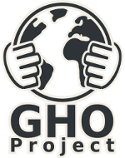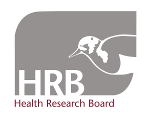The GHO Project


GIS Health Research Open Source
Context
When training health researchers in in the use of Geographical Information Systems (GIS) in poorer countries, there is an enormous problem in sustaining the expertise that is being developed. We can fall back on the usual culprits: people, data and technology. A major barrier in the technology phase has been software. We tend to train using software we know is robust, and that software is often a commercial project which is unaffordable to those we have trained.
Developments in Open Source GIS are now at a stage which offer great opportunities to overcome this barrier. One product, Quantum GIS (Q-GIS) looks ideal for 2 reasons. The first is the considerable improvements in the software itself. The second relates to improvements in linkages with important tools for spatial statistical analysis, notably to R. GeoDA is another freely available, immensely powerful package for data exploration.
Aim
The main aim of this project is capacity building, to develop sustainable training in GIS for health researchers in poor countries, at minimal cost to those being trained.
Objectives
- to develop a one-week initial training course in GIS for health researchers using Q-GIS, R and GeoDA. This is the first step in training the trainers.
- to pilot this in September 2011.
- to support continued learning with web-based support.
- to develop more advanced training courses.
- to assist with data provision.
Pilot programmeme
A pilot programmeme would be run in Maynooth, Ireland, from 7-15th September, 2011. Funding available allowed the invitation of about 5 potential trainers. The programmeme would consist of a two-stage workshop. The first part of the workshop would be dedicated to training this group in the Open Source software, and identifying what GIS content would be most appropriate in the first set of training materials. The second part of the workshop would allow the first opportunity for the project participants to train another group of volunteers, and then evaluate the programmeme, and develop the way forwards (including material for follow-on workshops involving more sophisticated analytical approaches).
The basic content would include:
- Setting up hardware (laptops) for open source operation
- Sources of basic geographical datasets
- Capturing and mapping point data; basic analysis
- Mapping area data; basic analysis
- Generating surfaces from data; visuaulsation.
This would be delivered using problem-based learning approaches.
The GHO Development Team [all giving their time free of charge]
- Jan Rigby [NUI Maynooth]
- Carson Farmer [NUI Maynooth]
- Chris Brunsdon [University of Liverpool, UK]
- Martin Charlton [NUI Maynooth]
- Ronan Foley [NUI Maynooth]
- Paul 'Harry' Harris [NUI Maynooth]
- Ishwari Sivagnanam [NUI Maynooth]
- Walter French [NUI Maynooth]
- Chris Skelly [ABIN, Australia]
- Ben Wheeler [Environment & Human Health Institute, Truro, UK]
Jan Rigby


